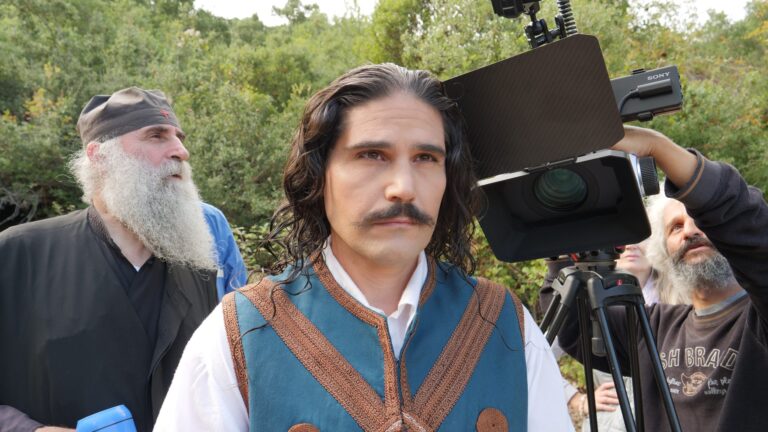By Ilias Karagiannis
A new movie “Diakos the heroic martyr” brings the story of Athanasios Diakos to life on the big screen, where audiences see his journey from the day of his baptism in the church to his martyrdom on April 24, 1821 in Lamia, Greece.
Diakos was a Greek military leader among the protagonists of the first year of the Greek Revolution of 1821 who worked in central Greece. He was from the mountainous region of Phocis and, according to one source, his real name was Athanasios Grammatikos, or according to other sources, Athanasios Massavetas.
He chose “Diakos” as his surname and was initiated into the Friendly Society (Filiki Eteria) in 1818, becoming a charioteer in Livadeia in 1820. In April 1821, together with other military leaders, he seized the fortress of Livadeia and used it. as a basis for engaging in many victorious battles.
He captured the Alamana bridge and on April 23, 1821, he fought the Ottoman troops. In this battle he was captured and after being transferred to Lamia, he was tortured and murdered by the Ottomans on April 24, 1821.
The film “Diakos the Heroic Martyr” is the new production of Philotimo Film. The organization is under the auspices of the Spiritual Center “Agios Fotios” of the Holy Metropolis of Kitrou, Katerini and Platamonos.
Four hundred and fifty volunteers of all ages, from young children to the elderly, participated in the making of the film, each willing to contribute their own knowledge.
The inspiration for this initiative is Father Pavlos Ntouros, screenwriter and director of the film, who spoke with The Greek Herald about the team’s new effort following a documentary on Jerusalem in 2013 and “A Nameless Tale” in 2014.
“The adventure of Philotimo Films (formerly Agios Fotios films) began in March 2013. That’s when the filming of the documentary “From Unseen Passions 1” began. It was written by Graphontos and directed by Kostas Kalpatzidis, and deals with Easter in the Holy Land and was completed in June of the same year,” said Father Pavlos. The Greek Herald.
“The enthusiastic reception of the people of Pieria encouraged our pioneer filmmakers and they dared to test their strengths in a fiction film, “A Nameless Tale”. This is the first film adaptation of the famous novel by Pénélope Delta, which is a hymn to the common sacrificial effort for the good of the Fatherland.
“The making of the film itself was done with such a spirit of sacrifice and contribution from all of its contributors. It has also enjoyed great success in various regions of Greece, where it premiered in 2015 and 2016.
“Four years later – and after the production of “From Unseen Passions”, “Ascent” and “Church Mean” – began the creation of “Diakos the Heroic Martyr”, which is the most complete production of “Philotimo Films”. ‘ nowadays.
“The choice of the subject was made in the context of the celebration of 200 years of the Greek Revolution of 1821.”
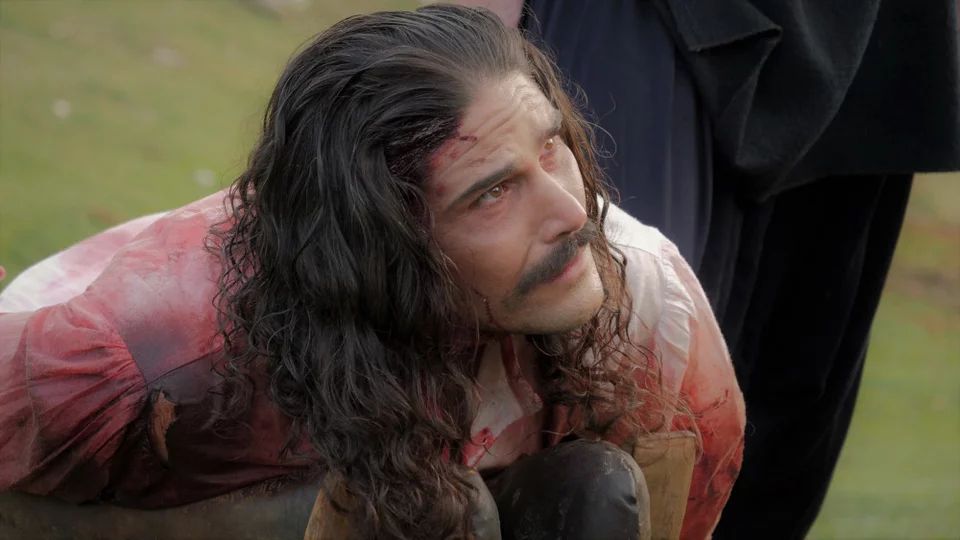
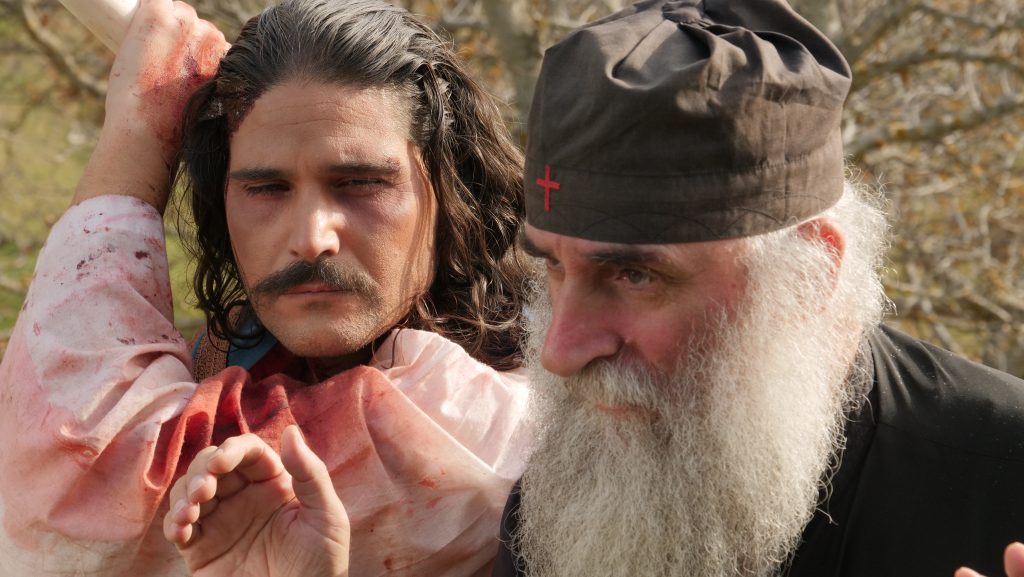
1821 revived in the villages of Pieria
Filming took place over five months in different districts of Pieria. From Agios Vasileios Karitsas to Dion, Palia Vrontou and Mount Olympus, but also to the surrounding places, such as Kokkinopilos in Elassona, Larissa and Siatista in Kozani, the picturesque town with strong elements of traditional architecture.
During filming, in addition to the hundreds of members and friends of the Spiritual Center “Agios Fotios” from Pieria, Giannitsa, Thessaloniki and elsewhere – most of whom were amateur actors, key roles such as director of photography, director of photography and sound recordist have been assigned. to the professionals, who contributed to this effort.
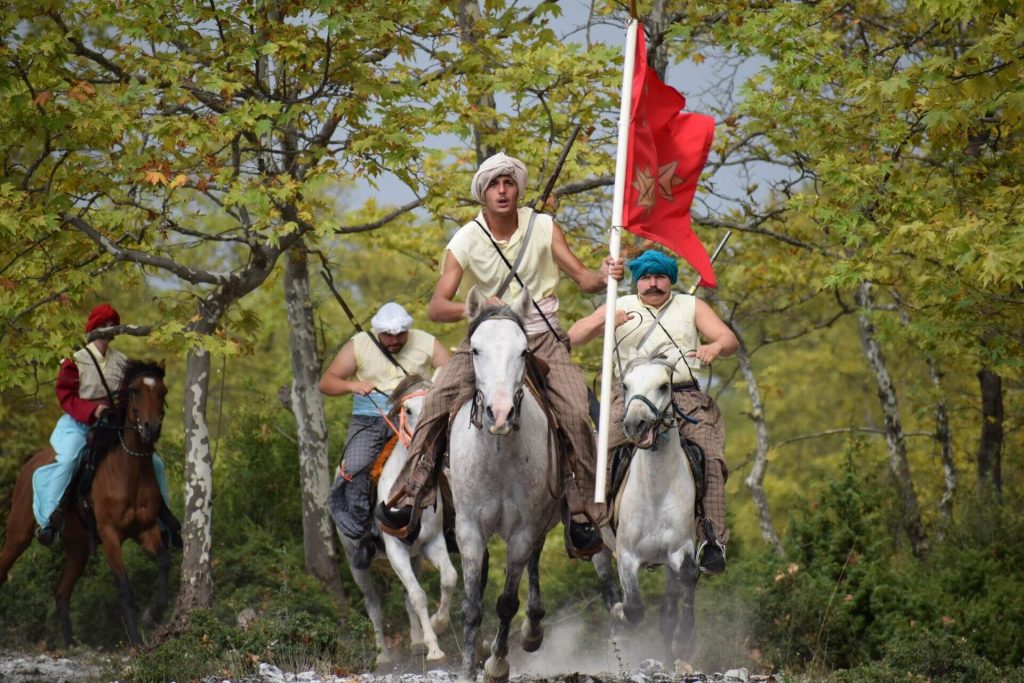
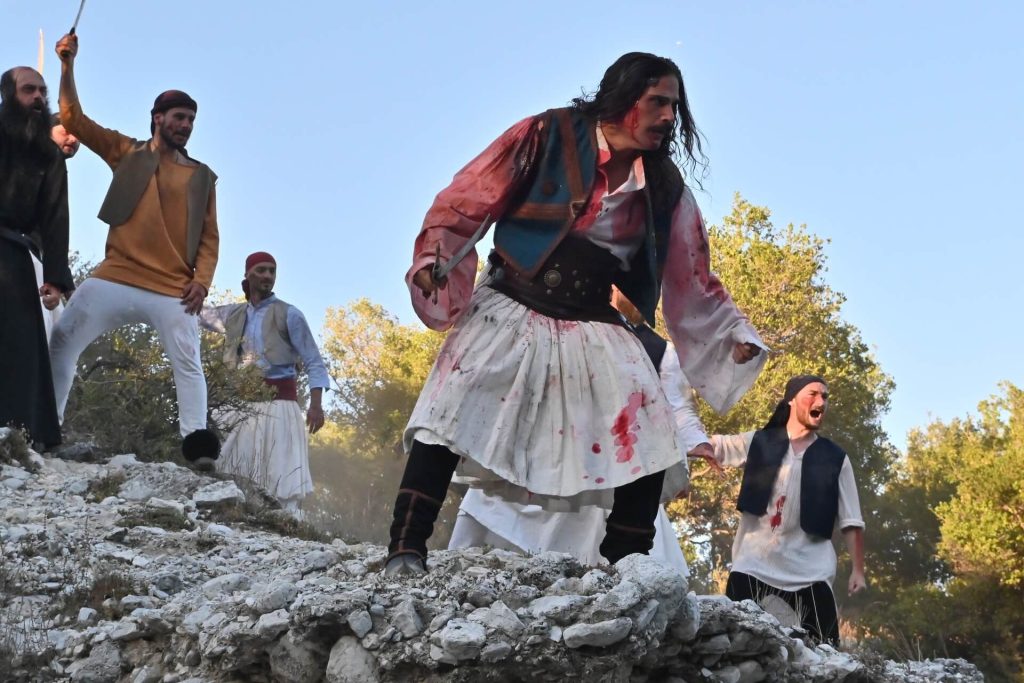
We asked Father Pavlos how Diakos was chosen as the hero of the film and he answered, inviting us to discover the deeper meaning of this choice.
“During the long history of Hellenism, heroism, courage and virtue shaped the souls of citizens, which is the essence of civilization. Today, unfortunately, there is a crisis of values and therefore a deep cultural crisis. Nevertheless, there are many of our compatriots who are inspired by the dazzling and lion-hearted spirits of the fighters of 1821. Their hearts become fiery, formidable, invincible, and… only they can “grasp” the deepest meaning of Diakos,” he said.
The result of the film looked very professional, so we asked Father Pavlos to tell us about the challenges they faced during filming.
“Philotimo films are one of the activities of the Spiritual Center “Agios Fotios” of the Holy Metropolis of Kitrou, Katerini and Platamonos and constitute a voluntary and altruistic ministry. With the blessing of His Eminence Metropolitan Georgios, a creative framework is put in place,” replies the priest.
“Of course, we don’t idealize everything; all pathologies of human congregations exist here, of course, but in general we have a common “vision” and we all strive with all our might to make it a reality.
“Two major difficulties of the project were: firstly, due to the nature of the film, having a large number of participants and then finding, training, coordinating their schedules, dressing them, moving them, feeding them, etc., and secondly , our inexperience. Both of these obstacles were overcome thanks to the heroic contributions of collaborators, including key contributors, actors, extras, technicians, donors and sponsors – but also thanks to the wishes and prayers of many friends very concerned about this effort .
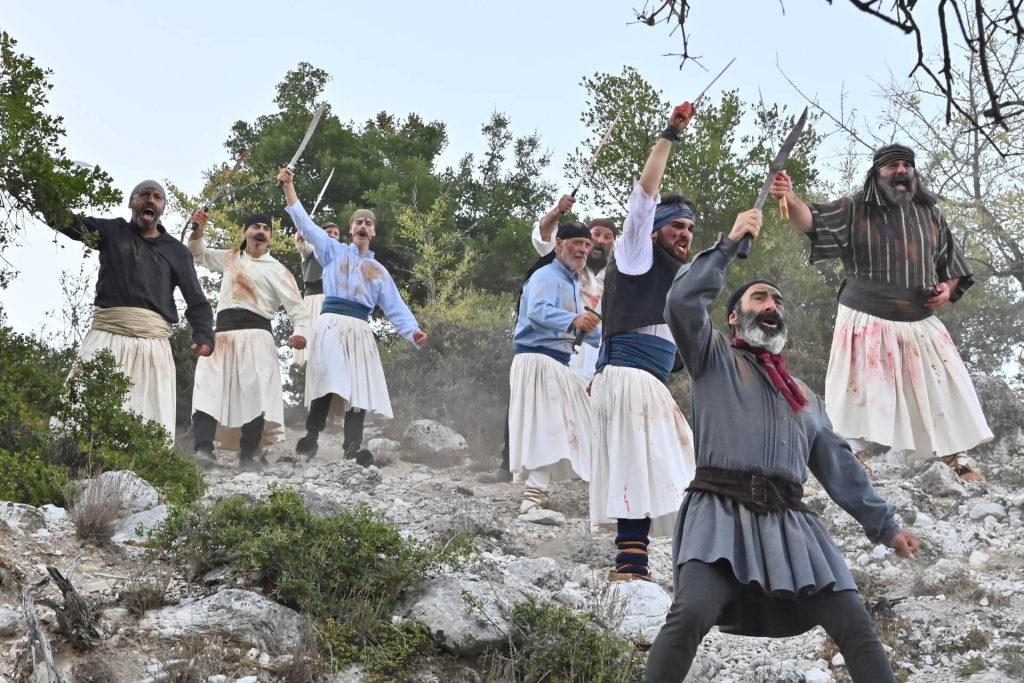
“The actors who met the requirements of the film professionally impressed us. The “pool” of actors and collaborators came from members and friends of “Agios Fotios”. Among them, but also among many new faces who pleasantly surprised us with their willingness to participate, the Casting Committee chose the actors of “Diakos”. They performed their roles impressively.
“The making of the film was greatly contributed by the knowledge and experience of certain professionals, but also by the care of all the members of the production team… And of course, there was also a post- extremely professional production!”
Sold-out sessions
The film has been shown several times at sold-out events, some aimed at students.
“The message of the film is more relevant than ever because unfortunately, nowadays we are living to a large extent in a decline in love for the homeland and love for the nation. We wanted, in our own way and with this cinematographic effort, to highlight and promote this element with the aim of transmitting it to everyone, young and old,” declared Father Pavlos.
“Greece has always been the bulwark of freedom. Let us mentally refer to the famous Antiquity, to the thousand-year-old Roman Empire and to the Ottoman domination which suffered so much; in all phases of Greek history, despite small or big shocks, the slogan was the same; FREEDOM OR DEATH!”
Father Pavlos also informed us of the reception given to the film.
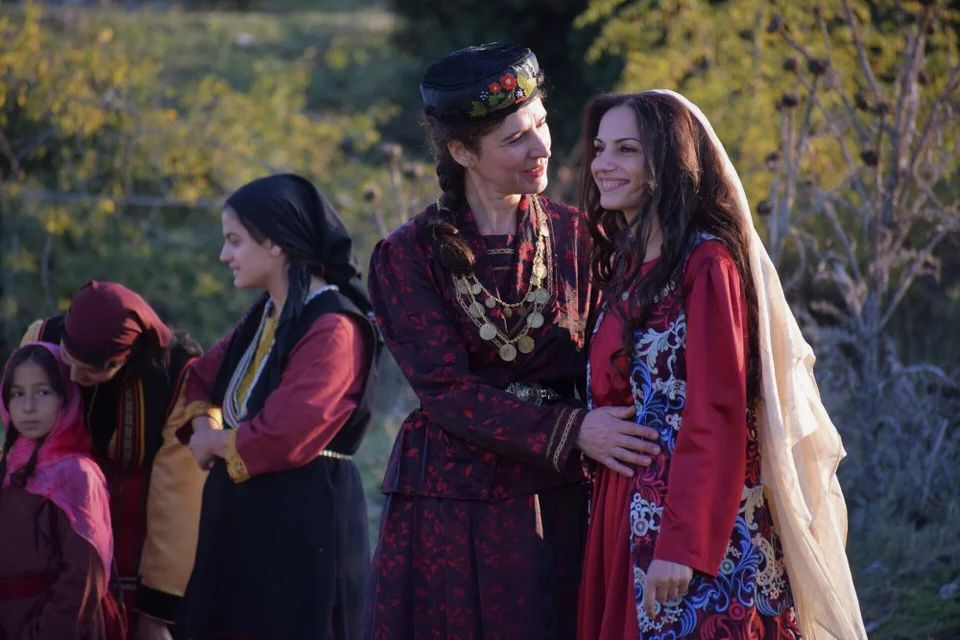
“Very hot! In many places in Greece and abroad – although we expected a greater response from the Greek-American community – the enthusiasm and emotion… are indeed remarkable! Katerini screenings, at the UKARPIDIS cinema, sold out, in Athens a “queue” of spectators, at school screenings, young spectators are captivated!
“A really moving scene took place during one of the screenings; a disabled man – a retired general – desperately wanted to see the film, which was being shown in a location that was not easily accessible to him. His obvious desire to see the film moved the spectators who mobilized to transport him to the screening space! Finally, he thanked them with many tears in his eyes.
The expatriate community in Australia, due to its distance from its homeland, experiences birthdays like March 25 and everything Greek more intensely. The film about Diakos will be a pleasant surprise.



